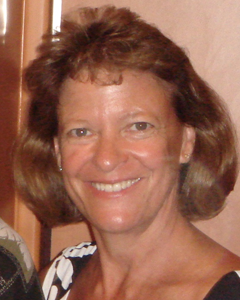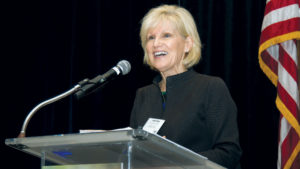
Deep collaboration between regulators and providers is the target of at least some of the panelists for the new federal COVID-19 nursing home commission.
The 25 members of the Coronavirus Commission for Safety and Quality in Nursing Homes were named Friday afternoon. Members range from CEOs of large companies to academic researchers and consumer advocates to frontline nursing home providers of single facilities.
“I envision a concept of shared accountability,” said Janet Snipes, executive director of Holly Heights Care Center in Denver and a member of the last group. “I had the opportunity to participate in two very different infection control surveys, one that was collaborative and focused on systems/practices and another which focused on the ‘gotcha!’ mentality, even timing the seconds that staff members rubbed their hands with alcohol based gel.
“I learned that the spirit of collaboration in the first survey was truly helpful and I feel surveyors and QIOs alike should be held accountable for achieving and meeting the needs of the resident, helping us secure PPE and testing, working collaboratively to answer questions, consulting with our staff on alternate practices when conventional standards are not available,’ she told McKnight’s on Saturday.
Snipes and the other commissioners will have a kick-off meeting this week and continue to assemble by remote means weekly through at least July.
“A collaborative approach in which all parties have a vested interest in achieving best practices and sustained compliance would save lives both in our facility and throughout our nation,” Snipes said. “I hope the commission will bring about a vision of change that will incorporate this concept of shared accountability.”
Penalties not the solution
The leader of the largest nursing home association in the U.S. also emphasized the need for the state officials, ombudsman representatives, researchers and others on the commission to put themselves in providers’ place during considerations.
“Nursing homes cannot beat this pandemic alone, and focusing on enforcement and penalties neither recognizes the nature of the virus nor solves the problem,” said American Health Care Association / National Center for Assisted Living President and CEO Mark Parkinson in a statement Friday. “Providers need the support of public health officials to prioritize our residents and help facilities acquire the necessary resources. We hope the independent commission will address this critical need.”

The top executive at LeadingAge California, President and CEO Jeannee Parker Martin, similarly has high aspirations for her time on the panel.
Nursing homes, she said, have not modernized at the pace of other provider types, “often due to antiquated and/or restrictive state and federal regulations.” She added that workforce management, staffing models, and technology integration could be targeted to boost quality.
“Importantly, the commission must think beyond COVID-19 and future emergencies, and consider the best path forward,” she said. “It must help lead radical discussions and serve as a conduit for reform in regulations and care delivery to nursing home eligible patients. I’m excited by the possibilities to help lead change in this sector.”
Parkinson reminded that the pandemic is not a past-event to be learned from but rather still a daily danger.
“Nursing homes and other long-term care facilities are still in the day-to-day battle of keeping the virus at bay,” he reminded. “Providers continue to face ongoing challenges in accessing and affording surveillance testing, personal protective equipment and additional staff support. Meanwhile, many states are re-opening portions of society, which is contributing to an increase in cases in some areas of the country … we have yet to receive the level of resources we need.”
The commission is tasked with submitting a final report with recommendations for best practices and potential new regulations. While officials earlier said the commission’s final report would be submitted Sept. 1, CMS said in a statement Friday that it “anticipates the Commission’s final report in fall of 2020.”




